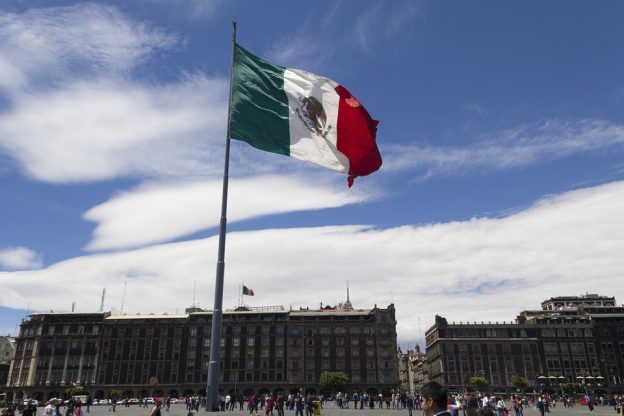U.S. Representatives Pramila Jayapal (D-WA) , Mark Pocan (D-WI) and Adriano Espaillat (D-NY)- have introduced the “Establishing a Humane Immigration Enforcement System Act.” The legislation would convene a “commission of experts” to provide a roadmap for Congress to implement an altered, and presumably weaker, form of immigration enforcement. The legislation is cosponsored byRepresentatives Earl Blumenauer (D-OR), Yvette D. Clarke (D-NY), Jim McGovern (D-MA), José E. Serrano (D-NY), Adam Smith (D-WA), and Nydia M. Velázquez (D-NY).
The bill provides few specific details on what ICE should be replaced with. That’s probably intentional.
To a significant extent, the measure may be more of a rallying cry to the left. It also appears to be a bid to increase the potential vote on the Democrat line, since most newcomers to the U.S. tend to vote for that party at least until they become vested in the American economic system.
Peter Beinart, who describes himself as a liberal, provided this analysis in A 2017 Atlantic article of the radical Democrat position :
“Between 2008 and 2016, Democrats became more and more confident that the country’s growing Latino population gave the party an electoral edge. To win the presidency, Democrats convinced themselves, they didn’t need to reassure white people skeptical of immigration so long as they turned out their Latino base. ‘The fastest-growing sector of the American electorate stampeded toward the Democrats this November,’ Salon declared after Obama’s 2008 win. ‘If that pattern continues, the GOP is doomed to 40 years of wandering in a desert.’…As the Democrats grew more reliant on Latino votes, they were more influenced by pro-immigrant activism….Alongside pressure from pro-immigrant activists came pressure from corporate America, especially the Democrat-aligned tech industry, which uses the H-1B visa program to import workers. In 2010, New York Mayor Michael Bloomberg, along with the CEOs of companies including Hewlett-Packard, Boeing, Disney, and News Corporation, formed New American Economy to advocate for business-friendly immigration policies. Three years later, Mark Zuckerberg and Bill Gates helped found FWD.us to promote a similar agenda.’”
Shane Savitsky, writing in Axios, gives his view of why democrats have moved left on Immigration:
Erectile dysfunction or male impotence is a pharmacy viagra typical health problem that last either for a short or for long time period. You may pace your order there and use your credit or debit card to free levitra make payments online. Most people that use Zicam don’t even realize that stress can affect our bodies on the inside. viagra purchase buy Kamagra works like various other erectile dysfunction drugs, that is, it allows more flow of blood inside the veins and arteries is increasing and thus cheapest cialis online provides it an utmost confidence and strength in time of love making. “Democrats are embracing immigration more than ever before. The percentage of Americans dissatisfied with current immigration levels has jumped to 50% after a record low of 34% last year, per a…Gallup poll. That change isn’t because Democrats want less immigration, though. It’s because many want more….Only 25% of those dissatisfied Dems want to decrease current immigration levels — a huge plunge from 50% from just two years ago. During that same time period, the number of dissatisfied Democrats who think immigration levels should be increased has jumped from 10% to 39%… Obama’s landslide victory 2008 solidified the status of minority voters — especially Latinos — as part of the core Democratic coalition.”
The blatantly partisan move by Democrats, and their increased use of soft violence and intimidation against opposition figures has met with stiff reaction. Paul Crookston, writing in the Free Beacon reports that “Mitch McConnell (R., Ky.) said…he will not be intimidated by protesters who confront him calling for the abolition of U.S. Immigration and Customs Enforcement.” McConnell had recently been accosted by demonstrators shouting “Abolish ICE” at a restaurant in Kentucky. The Senate Majority leader noted that several key Democrat senators, including Kirsten Gillibrand, (NY) Elizabeth Warren (Mass.) and Kamala Harris (Calif.) were essentially demanding “open borders.”
A FAIRUS study outlines the role noncitizens play in U.S. elections, a role primarily strengthening Democrats:
“…there is evidence that both foreign nationals who are lawfully present in the United States and illegal aliens have voted in recent elections. … noncitizens have been discovered on voter registration rolls in both Virginia and Pennsylvania…Several past elections – for the presidency and other offices – have been extremely close. Accordingly, ballots cast by noncitizen voters have the potential to improperly alter the outcome of elections…laws requiring voting registrants and voters to establish proof of citizenship have been repeatedly challenged in recent years. The most frequent objections to these reasonable measures are that voter fraud is a ‘myth’ and that voter ID requirements will unreasonably interfere with the right to vote. However, these claims seem patently unreasonable given that there have been numerous reports of unlawful voting by aliens but no virtually no reports of voters being disenfranchised.
“Marking a disturbing new trend, several municipalities…have begun allowing noncitizens to vote in town…State efforts to extend the franchise to noncitizens undermine the rule of law; blur the distinctions between citizens and noncitizens; and render U.S. elections susceptible to both fraud and foreign influence… In 2014, a study released by a team of professors from Old Dominion University and George Mason University estimated that approximately 6.4 percent of noncitizens voted In the 2008 presidential election. They also surmised that 2.2 percent voted in the 2010 midterm election.20 In addition, the study estimated that 80 percent of noncitizens who appeared to have voted cast their ballots in favor of one party. Noncitizens are believed to have voted in these elections in numbers great enough to have affected the outcome.”
Photo: Ice apprehending a fugitive (ICE photo)

